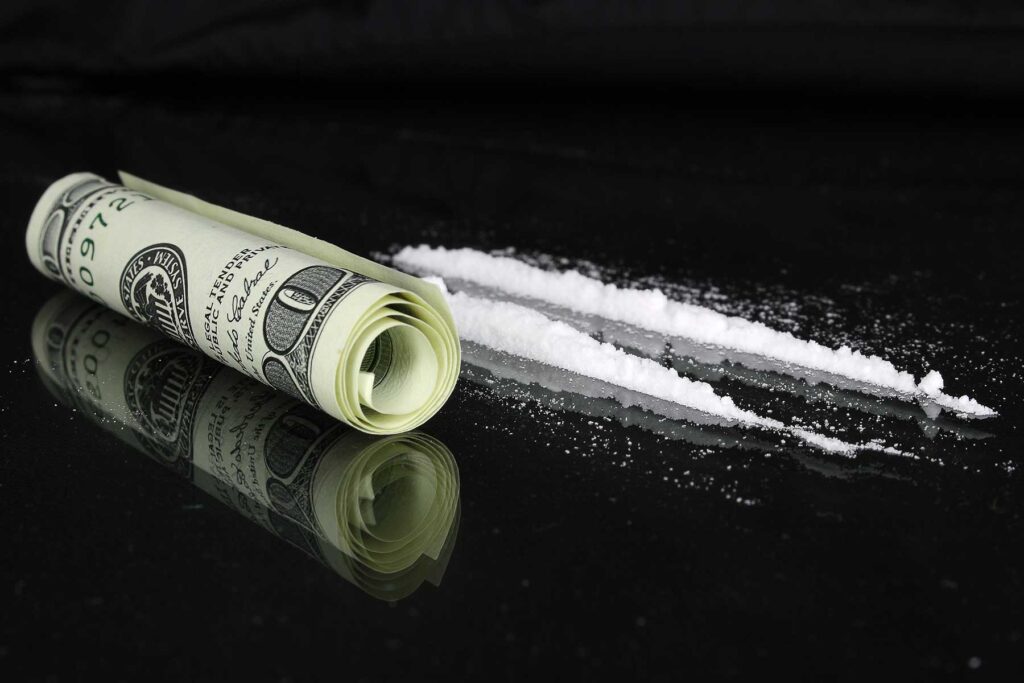Why is cocaine so addictive? In the United States, the rates of cocaine abuse and addiction are very high. Learning what makes cocaine addictive is essential to understanding why so many Americans are drawn to the drug and tackling the underlying issue of cocaine addiction. Ultimately, what makes cocaine addictive is the same reason many drugs are—their impact on dopamine levels in the brain.
If you or someone you love are struggling with cocaine addiction, call 844.875.5609 to speak with someone from Promises Behavioral Health about our cocaine detox centers and cocaine addiction treatment programs throughout the U.S. Our caring and compassionate team of professionals are available to help you find the resources and support you need.
About Cocaine
Cocaine is a stimulant drug derived from the South American coca plant leaves. It is ordinarily found in powdered, crystalline form, but it can also be combined with baking soda to make crack cocaine. Powder cocaine is snorted, rubbed into the gums, or mixed with water and injected directly into the bloodstream. Crack cocaine is made so it can be smoked.
Why Is Cocaine Addictive?
Cocaine is addictive in any form because of its impact on brain chemistry. Dopamine is a crucial chemical in the brain’s reward circuit, and it ordinarily responds to pleasurable things like eating that are necessary for survival. Cocaine increases dopamine levels in the brain, creating an unnaturally intense feeling of pleasure. The effect it has on dopamine is what makes cocaine addictive.
Ordinarily, the dopamine the neuron releases is recaptured to “turn off” the chemical signal. However, cocaine stops this “reuptake” process from occurring, which prolongs and intensifies the effects. When the revolution finally stops, the brain remembers this positive feeling, like it remembers the satisfaction of eating a delicious meal. The individual wants to repeat the action, and with continued use, the brain eventually adapts to the artificially inflated dopamine levels. This is known as “tolerance.” At this point, more of the drug is necessary for the same effects felt at the beginning of drug use. This process is what makes cocaine addictive.
Why Are Some People More Likely to Become Addicted to Cocaine?
Although everybody has the same brain chemicals, differences in the brain’s structure mean that some people are more likely to become addicted to cocaine than others. In particular, some people are more likely to get addicted to cocaine because of pre-existing differences in the size of the basal ganglia. However, genetic, psychological, and social factors also have a role to play. This complex interplay of factors makes cocaine addiction challenging to overcome. However, with support from professionals, people can and do overcome this addiction every day.
What to Expect from Cocaine Addiction Treatment
Cocaine addiction is a complex problem to overcome on one’s own. With the help of a professional treatment team, people can begin to heal from their cocaine addiction. Treatment plans often include a combination of the following:
- Medication-assisted treatment (MAT)
- Counseling
- Lifestyle changes
- Support groups
- Holistic therapies
At Promises Behavioral Health, we provide evidence-based care to help individuals build a foundation for long-term recovery from cocaine addiction. We believe in the power of recovery, and our team is dedicated to helping you find lasting healing.
Find Cocaine Addiction Treatment with Promises Behavioral Health
Overcoming cocaine addiction often means learning new, healthier coping mechanisms for psychological issues like depression and anxiety. Still, with time and perseverance, you or your loved one can recover and live a healthier life. Contact Promises today at 844.875.5609 to learn more about our cocaine detox and addiction treatment programs and start on the path to recovery.

